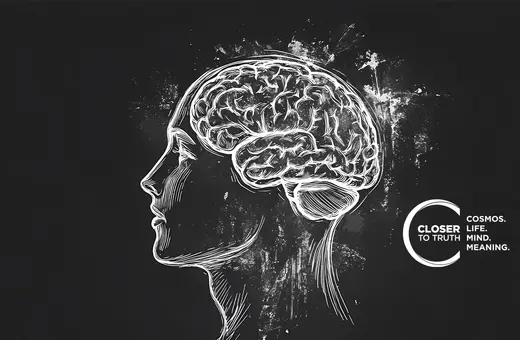The view of reality created by scientism is that of “bits of stuff pushing each other around in a void”. Such a worldview not only flies in the face of contemporary physics, chemistry and biology, and is therefore wholly unscientific, it is also a worldview that is actually based on religion, argues philosopher and Žižek collaborator, John Milbank. To overcome the disenchantment and lack of meaning this worldview creates, Milbank argues we must rediscover the natural magic of the universe and see science as part of a poetic project.
In the world of today, only science is held to be sacred. It is regarded as the holy guardian of “fact” and all legitimate public imperatives are increasingly supposed to be derived from “fact,” with everything else belonging to a domain of private freedom in which we are free to range within a playground of private and ungrounded preferences.
Of course, the boundary between these two domains is endlessly contested, and increasingly it is also blurred. What we are allowed to do on our own should also refer to established “fact,” as with dieting and exercise and so forth; increasingly, we are being compelled even to live and sleep our individual lives according to “scientific” measure. Conversely, the same measure is vastly expanding the sphere of private choice, providing we stick to the prescribed procedures. This includes an increasing ability and encouragement to alter and enhance our own bodies.
 SUGGESTED READING
Life's mysteries cannot be explained away, they are to be lived
By Orfeas Chasapis Tassinis
As to the public sphere of political and economic consensus, here most of all the “scientific” holds sway. This vision of reality is held to mean that we are (somehow) entirely detached surveyors of nature, whose gaze upon her ought to be objective. That gaze discovers her to be meaningless, with “meaning” being something dreamt up by poets or schoolgirl influencers. All that is true about her is that she contains bits of stuff in an empty void at various infinitesimally varying sizes from inconceivably minute to inconceivably large, which shove each other around. Insofar as we can mimetically imitate these processes, we discover “truths” which are commensurate with our power.
SUGGESTED READING
Life's mysteries cannot be explained away, they are to be lived
By Orfeas Chasapis Tassinis
As to the public sphere of political and economic consensus, here most of all the “scientific” holds sway. This vision of reality is held to mean that we are (somehow) entirely detached surveyors of nature, whose gaze upon her ought to be objective. That gaze discovers her to be meaningless, with “meaning” being something dreamt up by poets or schoolgirl influencers. All that is true about her is that she contains bits of stuff in an empty void at various infinitesimally varying sizes from inconceivably minute to inconceivably large, which shove each other around. Insofar as we can mimetically imitate these processes, we discover “truths” which are commensurate with our power.
The aim of every polity should be to fund this experimental research and to apply it to the social realm: endlessly to expand and reduce things, make them go ever faster and ever slower; make ever more exact images of these processes and transmit these images at ever faster or artificially delayed rates. This “product” is also a spectacle that is in itself a further product. Whether we are capitalists or socialists, the great aim is to increase such productivity.
Of course, it is difficult to admit that, from the outset of Francis Bacon’s seventeenth-century project to pursue knowledge via experimental method in order to wield power over nature, what we now call “science” was inherently technology and measured by technology. The sociologist Robert K. Merton showed in the early twentieth century that the Industrial Revolution was as old as the scientific one, revealing science as intertwined with technological innovation from the outset rather than a purely knowledge-based endeavor. Nonetheless, our historians still choose to ignore his evidence concerning seventeenth-century England.
___
The mysteries of human behaviour are dealt with by the largely pseudo-science of psychology—as if the workings of our mind (as opposed to the life-inducing “soul” which we share with animals and perhaps plants) could be reduced to affective impulses scarcely under our control, but not beyond the reach of chemical and social stimulants.
___





















Join the conversation